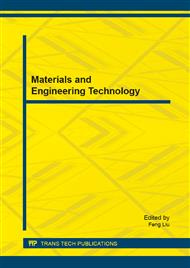p.324
p.330
p.336
p.346
p.352
p.359
p.365
p.369
p.376
Dynamic Optimization of Inland Navigation Fuel Consumption Based on Speed Distribution
Abstract:
In the paper, a new method is proposed for the hot issues of the fuel-saving of the inland navigation. Firstly, the thought of segmentation is used to construct the model of fuel consumption in the inland navigation, which takes a whole grasp of the voyage. Then, we use the nested adaptive genetic algorithm and sequential quadratic approximation (SQP) method respectively to plan out the optimal distribution of speed in order to reach the lowest fuel consumption. Also, simulation of the two methods were carried out and compared. According to result analysis, the more appropriate sequential quadratic approximation method is selected. Finally, the optimal speed distribution and the lowest fuel consumption is obtained, which is with guiding significance for the sailing crew. More importantly, the method can be applied to any navigation and any ships.
Info:
Periodical:
Pages:
352-358
Citation:
Online since:
January 2015
Authors:
Price:
Сopyright:
© 2015 Trans Tech Publications Ltd. All Rights Reserved
Share:
Citation:


